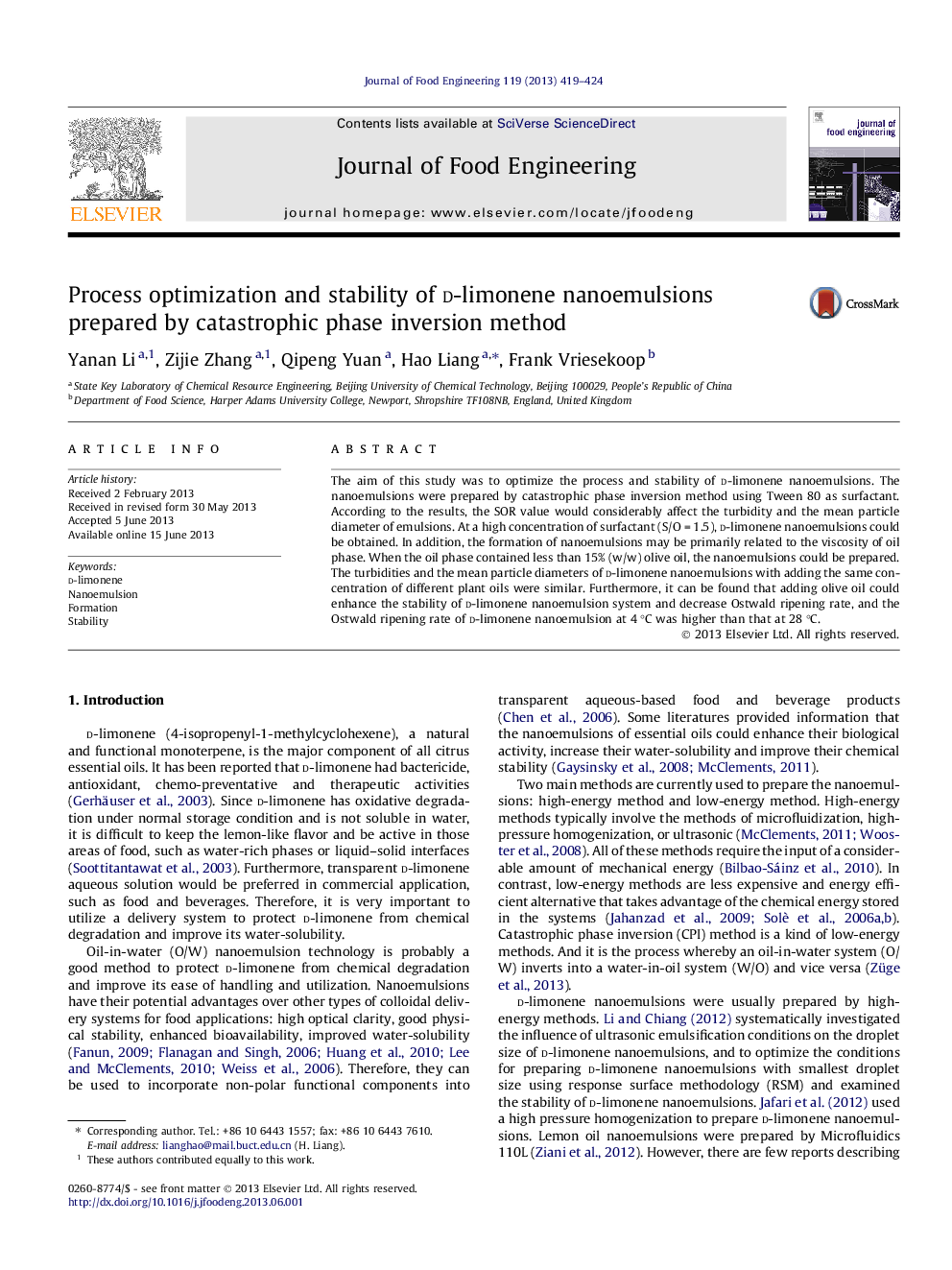| Article ID | Journal | Published Year | Pages | File Type |
|---|---|---|---|---|
| 10277258 | Journal of Food Engineering | 2013 | 6 Pages |
Abstract
The aim of this study was to optimize the process and stability of d-limonene nanoemulsions. The nanoemulsions were prepared by catastrophic phase inversion method using Tween 80 as surfactant. According to the results, the SOR value would considerably affect the turbidity and the mean particle diameter of emulsions. At a high concentration of surfactant (S/O = 1.5), d-limonene nanoemulsions could be obtained. In addition, the formation of nanoemulsions may be primarily related to the viscosity of oil phase. When the oil phase contained less than 15% (w/w) olive oil, the nanoemulsions could be prepared. The turbidities and the mean particle diameters of d-limonene nanoemulsions with adding the same concentration of different plant oils were similar. Furthermore, it can be found that adding olive oil could enhance the stability of d-limonene nanoemulsion system and decrease Ostwald ripening rate, and the Ostwald ripening rate of d-limonene nanoemulsion at 4 °C was higher than that at 28 °C.
Related Topics
Physical Sciences and Engineering
Chemical Engineering
Chemical Engineering (General)
Authors
Yanan Li, Zijie Zhang, Qipeng Yuan, Hao Liang, Frank Vriesekoop,
